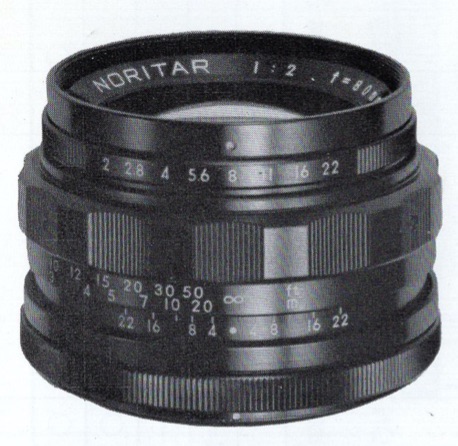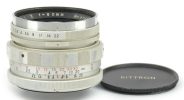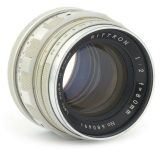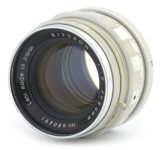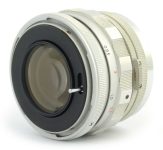Norita Kogaku Noritar 80mm F/2
akaRittron 80mm F/2
Standard prime lens • Film era • Discontinued
- Announced:
- · 1968
- Production status:
- ● Discontinued
- Country of design:
- · Japan
- Original name:
- · RITTRON 1:2 f=80mm
- · NORITA KOGAKU NORITAR 1:2 f=80mm
- Class:
- · Fast 6x6 medium-format standard prime lens
- · Professional model (Top class)
- System:
- · Rittreck / Norita 66 (1968)
Specification
| Optical design: | |
| Medium format 6x6 | |
| 80mm | |
| F/2 | |
| 6 elements in 4 groups (Double Gauss derivative) | |
| Norita 66 [68.2mm] | |
| 52.3° | |
| Diaphragm mechanism: | |
Diaphragm type: | Automatic |
Aperture control: | Aperture ring (Manual settings only) |
| 6 (six) | |
| Focusing: | |
| 0.85m | |
| <No data> | |
Focusing modes: | Manual focus only |
Manual focus control: | Focusing ring |
| Physical characteristics: | |
| 440g | |
| ⌀76×62mm | |
| Accessories: | |
| Screw-type 62mm | |
| <No data> | |
| Not available |
Sources of data
- Norita 66 booklet.
- Norita 66 operating manual.
- Graflex Norita 66 booklet.
Manufacturer description
Noritar 80mm F2 is the standard lens for the Norita 66 SLR camera. It is the first "high-speed" lens specially computed to meet the requirements of the NEW "second-generation" SLR cameras using the 6X6cm film format. With its F2.0 aperture the Noritar 80 lens permits true "available-light" technique so important and so useful to the press and magazine photo-journalist. This new Gauss type lens has brilliant image qualities and exceptional contrast with a minimum of "flare" - which is easily removed by "stopping down" the aperture slightly. Unusual performance for superior color photography is always obtained because of sufficient brightness as well as excellent image definition right to the edges of the image field.
From the editor
The fastest standard lens for a medium format camera at the time. Designed and manufactured by Norita Kogaku. Initially the lens was branded Rittron, but after the production of 6x6 SLR cameras was handed over from Musashino Kōki (the creator of Rittreck 6x6) to Norita Kogaku, the lens was renamed to Noritar.
